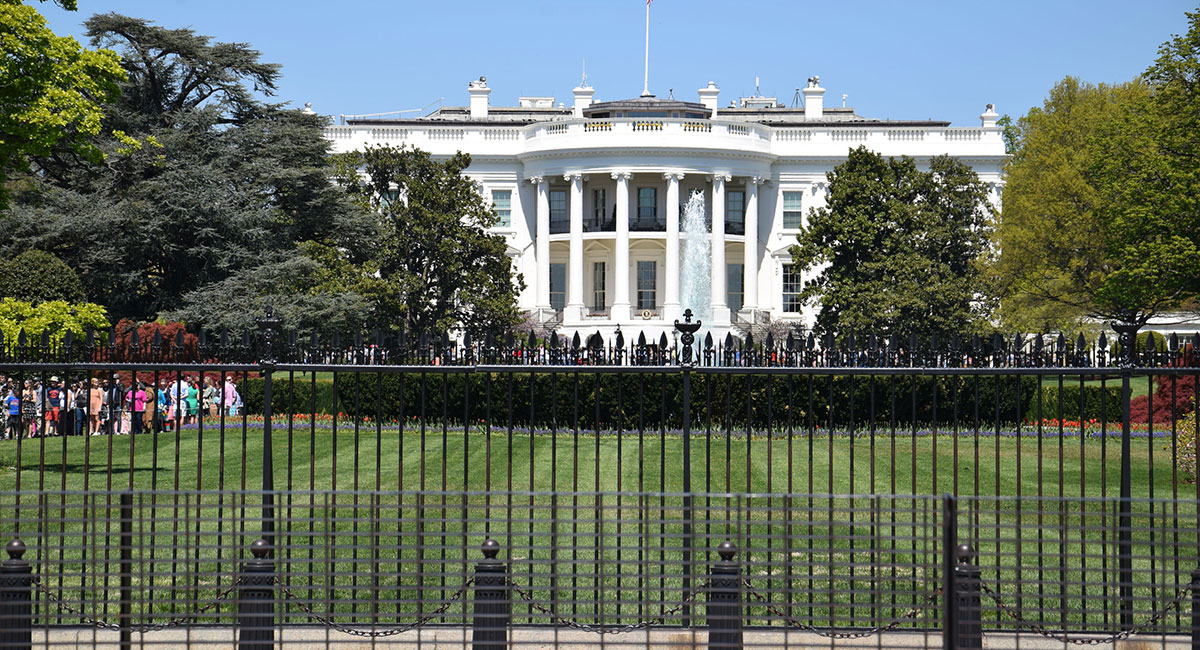Lately, the news is filled with foreign wars, crises, and political tensions deemed dangerous to the United States. Which is the most threatening to U.S. security? Which should we be most worried about? But perhaps the biggest threat to the American republic lies closer to home.
Many in the realist foreign policy school would say that even considering a large hot war over Ukraine and a smaller one in the Middle East, a rising China is a much bigger threat to American security. Some analysts fear that China is judging the uncertain U.S. effort to help Ukraine defend itself as an indicator of the extent of its ambiguous commitment to assist Taiwan in the event of a Chinese attack.
Yet the failed Russian invasion of Ukraine should give Xi Jinping, the Chinese autocrat, pause before invading Taiwan. Before Russian dictator Vladimir Putin became ensnared in the Ukrainian quagmire, it was believed that he had successfully resurrected the Russian military from its post-Soviet doldrums. But this myth died quickly when combat in Ukraine showed that endemic corruption in the Russian defense establishment had rendered Putin’s military refurbishment illusory. Essentially, everyone was too scared to tell Putin that his reforms weren’t going well and that the money was being siphoned off into senior military officers’ pockets. Similarly, the despotic Xi has to worry that the rampant corruption in China has infected the Chinese military. In fact, he just fired his foreign minister and several high-level military officials, indicating that he may be apprehensive that his military has also been hollowed out by corruption.
One other major lesson Xi should take from the Ukraine war can be gleaned from a major unheralded Ukrainian achievement. Although Ukraine’s Navy has no ships, it has pushed the Russian Black Sea Fleet away from the Ukrainian coast through the use of drones and homemade anti-ship missiles. It sunk the Moskva, the Black Sea Fleet’s flagship, with one such missile and damaged other Russian ships in further attacks. World War II showed the vulnerability of naval surface vessels to attack from the air, and the Falkland Islands War in 1983 confirmed the air threat. Yet, like the U.S. Navy, the Russian Navy continued to build too many surface vessels instead of more submarines. The Ukraine war has shown that modern technology used from land, even by a country without ships, can threaten a powerful surface fleet. But unlike Ukraine, Taiwan has a navy, which can be improved by buying more submarines, anti-ship missiles, sea mines, and mine-laying ships.
To invade Taiwan, China would need to conduct an amphibious assault—one of the most fraught types of military operations—over about 100 miles of open water, using amphibious surface transport ships. The 1944 amphibious assault across the English Channel of about the same width was almost thrown back by German forces denuded of military equipment that had to be sent to the German front against the Russians. Alternatively, any Chinese naval blockade of Taiwan would rely on those same vulnerable surface warships.
A more fanciful threat is that if the Ukrainian military does not push the Russian army out of all occupied Ukrainian territory, Ukraine will have lost the war, and Russia will be emboldened to attack other European countries, such as the Baltics or Poland. Yet the Russian military’s grossly incompetent performance and huge losses in war material and casualties (estimates are more than 500,000 dead) should make Putin wary of and likely incapable of future military adventures. As for Ukraine’s future, Finland’s successful repulse of a Russian invasion in 1940 is illustrative. The Finns fought surprisingly well and fared well in the long term on Russia’s border after ceding a bit of territory and accepting a constrained foreign policy in exchange for domestic autonomy and prosperity.
Similarly, after Ukraine fought off Russia’s initial invasion in 2022, the underdog beat expectations. As a long-term solution allowing both combatants to save face, free, fair, and internationally supervised referenda could be held in occupied areas, some or all of which might elect to become part of Russia. Until a settlement of the currently stalemated conflict is reached, the funding for any further fighting by Ukraine should be transferred completely to wealthy Western European countries; keeping Ukraine out of Russian hands is much more strategic to them than it is to U.S. security.
Therefore, we should conclude that these alleged external threats have been overstated. In recent comments, former president and 2024 candidate Donald Trump correctly assessed threats to the United States by saying, “The threat from outside forces is far less sinister, dangerous, and grave than the threat from within.” The problem is that he didn’t acknowledge that the main threat to the American republic is him! Instead, he dubbed his political opponents “vermin” and threatened to use the criminal justice system to prosecute them. He grandiosely and erroneously claimed that Article II of the Constitution, which deals with executive branch powers, gave him “the right to do whatever I want.” He advocated terminating the U.S. Constitution—the bedrock of the republic—for his own benefit. Most disturbing, Trump incited an insurrection as part of a wider self-coup to remain in power illegally. When we already know what Trump will likely do if elected again, Americans cannot afford to be distracted by foreign wars and “crises” as the republic is most threatened internally by a potent and dangerous demagogue being restored in the 2024 election.

















